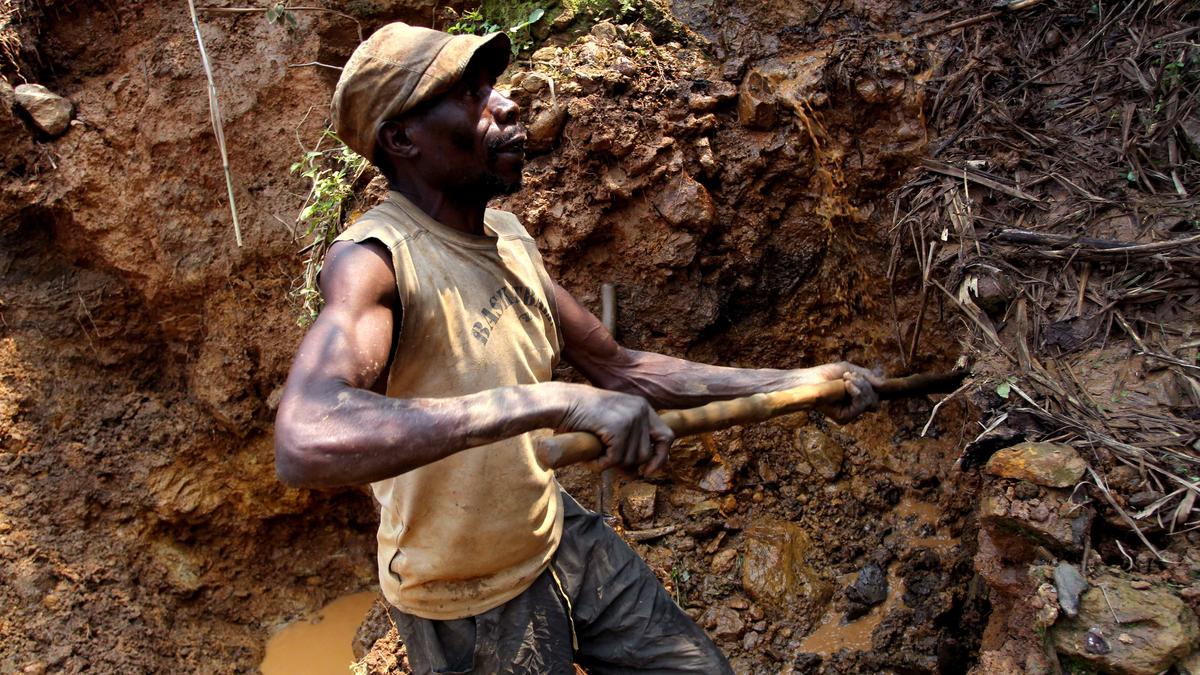Apple's Conflict Minerals Scandal: Is Your iPhone Made With Blood?
Are you one of the millions who eagerly await the next iPhone release? Do you love the sleek design and seamless functionality? What if we told you that the very phone you hold might be tainted by violence and suffering? The Democratic Republic of Congo (DRC) has launched a bombshell lawsuit against Apple, accusing the tech giant of complicity in war crimes through its use of conflict minerals. This isn't just another corporate scandal; it's a wake-up call to the ethical dilemmas buried deep within our beloved tech gadgets.
The Dark Side of Your Shiny Gadgets
The DRC, a major source of tin, tantalum, and tungsten (3TG) – essential minerals for our electronic devices – has been ravaged by conflict. Armed groups control many mines, profiting from the illegal extraction of these resources. Massacres, rapes, and looting are commonplace, and the blood of innocent Congolese people stains these minerals. Apple, along with other tech giants, relies on these minerals, raising serious ethical questions about supply chains. Apple's 2023 filing claimed no involvement, but Congo claims otherwise.
Congo's Legal Battle Against Tech Giant Apple
The Congolese government is not backing down; their lawsuit alleges that Apple is aware of this, and have made criminal complaints in France and Belgium. The charges are shocking: covering up war crimes, laundering tainted minerals, handling stolen goods, and engaging in deceptive business practices. They argue that Apple's 'clean' image is a façade. Congo accuses Apple France and Apple Retail France and Belgium, for offenses like covering up war crimes and laundering tainted minerals. Congo chose France and Belgium due to their emphasis on corporate accountability.
ITSCI: A Broken System?
Apple claims to adhere to ethical sourcing practices. It uses the International Tin Supply Chain Initiative (ITSCI) to trace the origins of minerals. However, the Congolese government has heavily criticized ITSCI, asserting its failure to prevent minerals mined in conflict zones from entering the global supply chain. ITSCI’s credibility is also under question, having been suspended by the Responsible Minerals Initiative (RMI), an organization to which Apple belongs. This raises critical questions about the effectiveness of Apple’s self-proclaimed supply-chain transparency.
The Human Cost of Cheap Electronics
The cost of our cheap electronics might be more than we think, and its high time Apple is held accountable. For years, the violence in the DRC has gone largely ignored in the West, with the focus often placed on other geopolitical matters, however, this is where the components of the modern phone are often made. Apple's actions or inactions could bring some badly needed awareness of this conflict, and cause lasting change. This lawsuit could force the tech industry to re-evaluate its priorities, and ultimately its future. A future that considers the human cost of their products and a commitment to true ethical sourcing practices is the only path forward, otherwise Apple could face damaging implications.
Take Away Points
- Apple faces serious allegations of complicity in war crimes in the DRC through its use of conflict minerals.
- The Congolese government's legal action highlights the challenges of ethical sourcing in the tech industry.
- The lawsuit raises doubts about the efficacy of current traceability initiatives like ITSCI.
- This case has potential implications for corporate accountability in supply chain ethics within the tech industry. The world watches to see how far this lawsuit proceeds.




